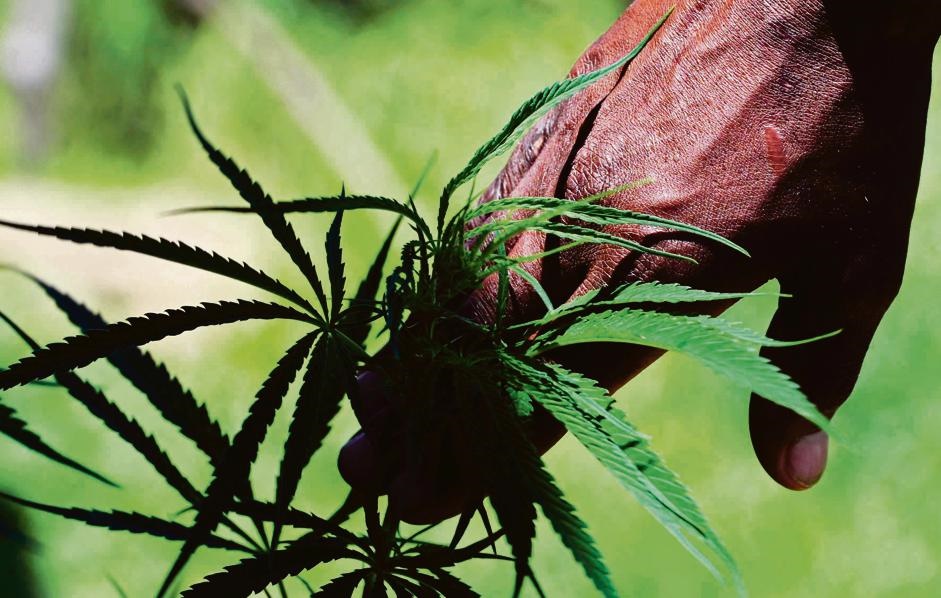
The pending introduction of a new cannabis bill by Parliament presents an opportunity to create a uniquely African cannabis industry.
A panel from civil society, academia and the legal fraternity told a recent Gibs forum South Africa is uniquely positioned to create a cannabis production model which includes small farmers and growers and leverages their existing expertise.
Following the Constitutional Court’s 2018 ruling that personal use of cannabis is not a criminal offence, Parliament has been given two years to change sections of the Drug Trafficking Act and the Medicine Controls Act, after these were found constitutionally invalid.
Legal challenge
Paul-Michael Keichel, a partner at Schindlers Attorneys, explained that last year’s Constitutional Court judgment was the culmination of a long battle, but has been widely misunderstood.
The judgment maintained the prohibition on dealing in cannabis and was intended to be an interim decision, allowing Parliament time to revise the existing legislation.
A cannabis bill is still to be published, and will undergo public consultation before it can be signed into law.
“We are presently in a state of limbo, a weird hybrid state. The focus is on personal and private use, but the industry is not yet formalised,” Keichel explained.
He urged lawmakers to look to foreign jurisdictions and learn from the mistakes they have made in cannabis regulation.
“We don’t want to deprive the poorest of the poor of the opportunity to pull themselves out of poverty by the means of a formalised and established cannabis industry. This would be a completely wasted opportunity for economic upliftment.”
Serial entrepreneur and Gibs alumnus Suresh Patel said there are “far greater opportunities by allowing the free market to operate, with the informal sector leading the charge. If the wrong Cannabis Bill is set in place, only a few privileged will benefit and the vast majority of South Africans are going to be excluded,” he warned.
Managing director of cannabis legalisation non-profit company Fields of Green for All, Myrtle Clarke, said her organisation was in favour of the legal regulation of cannabis and a “more sane drug policy as a whole”.
Effective legislation would require coordination across multiple government departments, including agriculture, the department of health and the department of trade and industry.
She said South Africa wasn’t lagging behind other countries in terms of regulation, but warned that: “It is the same plant, but there are different rules depending where you fit into the economic spectrum. It is a human rights issue and we must place those who use and cultivate cannabis at the forefront.”
Clarke commended the Constitutional Court for its judgment, which she said puts privacy first. However, “we are mired in a grey area at the moment and need new solutions,” she said.
“We are vehemently oppose to the licensing system, but that doesn’t mean that we are open to a free for all,” she added.
Towards an inclusive economic model for cannabis
Lecturer in rural development and agribusiness at the Department of Agricultural Economics at Stellenbosch University Hein Gerwel said the local cannabis industry presented the country with a unique opportunity for inclusive growth and widespread job creation in agriculture.
However, there is a risk of small-scale cannabis farmers and entrepreneurs being dominated by large corporations and a stringent regulatory framework.
“We have to avoid elite capture of the industry by big corporations who will come in and exclude the people on the ground.”
Gerwel said he believes cannabis should be allowed to function as a self-regulating industry.
Entrepreneur and author GG Alcock said South Africa’s existing cannabis value chain is a “sophisticated industry” that creates livelihoods in some of the poorest districts of the country, including the Eastern Cape and KwaZulu-Natal.
“We must drive an inclusive economy agenda and recognise and respect growers who have been functioning against all odds.”
He proposed an efficient and ethically correct model that would assist growers to improve their productivity and offer opportunities for beneficiation of the raw product for recreational or pharmaceutical use, similar to the fair trade coffee model.
This would allow farmers to receive a fair price for their product, and would benefit communities and the environment.
“There are huge concerns among growers that they will be replaced by formal channels,” Alcock said.
“Government doesn’t see growers as normal people trying to make a living, but as stoners or druggies,” he added.
Alcock said once new legislation was in place governing the industry, both the formal and informal channels would continue to exist in parallel: Agribusiness and formalised players will enter the market, encouraged by government in pursuit of tax revenue.
“This is the only model that government knows,” Alcock said. However, there would have to be some benefit to the informal cannabis producers and sellers to bring them into the system and encourage them to pay tax, he added.
“The informal sector is increasingly resilient and they have the distribution network. They will carry on and most likely dominate the recreational market.”
“There is already an existing cannabis economy in South Africa, we don’t have to create something, we just need to enable it,” Clarke concluded.
I have just uploaded Cannabis Forum. These are thinks.
1.Paul-Michael Keichel says Constitutional Court Cannabis Judgement has been Widely Misunderstood
2.Hein Gerwel on the Opportunities the Cannabis Industry Presents
3.GG Alcock on Cannabis Production for an Inclusive Economy
4.Myrtle Clarke says ‘Fields of Green for All’ in favour of the legal regulation of cannabis F
Regards,
Mlu




 Publications
Publications
 Partners
Partners








